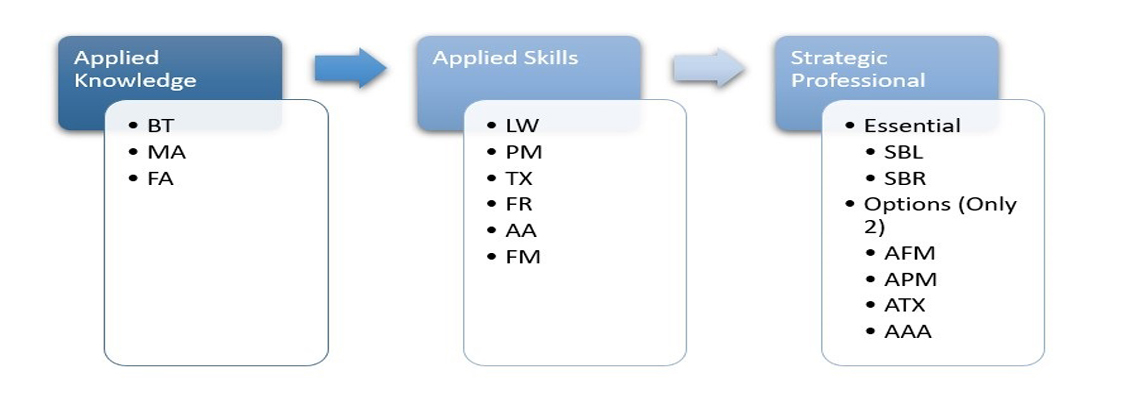What is the ACCA Qualification?
The ACCA stands for Association of Chartered Certified Accountants. Based in the UK, the ACCA has 2,41,000+ members and is one of the most popular credentials in accounting. It is highly respected and well-renowned in almost 180 countries and is trusted by employers all over the world. ACCA qualification holders are well-versed in several accounting concepts which allows them to skillfully handle the accounting needs of their organization or employer. Because of this, there are a variety of job prospects available to ACCA certification holders as discussed below. Additionally, we have also explained the important ACCA course details that anyone considering attempting the ACCA course should know about.
Job opportunities after ACCA
Financial accountants and management accountants are just some of the positions available to ACCA qualification holders. Additionally, professionals can also become corporate treasurers (responsible for ensuring that the organization has the capital to meet its obligations) or financial controllers (senior accountants in charge of the accounting department who ensure that financial statements and other reports are accurate and error-free). Forensic accountants’ positions are also a possibility and involve the use of accounting, auditing, and investigative skills to catch fraudulent activities within an organization. Furthermore, ACCA-qualified personnel may also become Chief Financial Officers, Auditors, or Tax Specialists. There are several possibilities for other positions as well and therefore the ACCA certification is an excellent qualification for those interested in the field of accountancy or that wish to become specialists in a particular field of accounts.

ACCA eligibility criteria.
In order to be eligible to attempt the ACCA exam, candidates will first have to meet the entry requirements. 2 A levels and 3 GCSEs in 5 separate subjects including English and Math are compulsory. To find out if you are eligible for the ACCA exam in your country, please visit the ACCA website to check your country’s educational requirements. However, in case you do not meet the minimum ACCA qualification requirements, there is no need to worry. Candidates can enroll in the Foundations level and then proceed to the ACCA once they have completed it. In addition to the educational requirements, candidates will also have to show proof of identification and submit the relevant documents before sitting the exam. Depending on the candidates’ educational level and qualifications, they may even be eligible for certain exemptions (up to 9 papers) and may be able to complete their ACCA qualification faster. After this, the next step is to register for and sit the exams.
Exam Syllabus
Candidates for the ACCA credential will have to pass 13 exams to gain certification. These exams are divided into 3 parts, applied knowledge, applied skills, and strategic professional. As shown in the diagram below, candidates will first have to sit for the first part of the ACCA exams i.e. Applied knowledge before they can move to the next stage, applied skill or they can sit for applied skills and knowledge exams together provided they are on the last applied knowledge exam. The same goes for the last 2 parts of the ACCA exam. We have listed below in the diagram, the ACCA subjects tested in the exams.

In addition to the 13 exams, candidates also have to complete a professional ethics exam and gain the necessary work experience requirements to gain the charter. All the ACCA exams are Computer Based Exams or CBEs. However, some exams can be taken on-demand anytime during the year and results are made available immediately while others take place in sessions. These ACCA exams are held 4 times a year, in March, June, September, and December at exam centers and are checked by expert markers. Exam candidates can sit up to 4 exams at one time and attempt a maximum of 8 exams in a year. The duration of exams varies for different subjects. Another important aspect of the ACCA course is the fees, which we have discussed below.

Fees
The ACCA fees include an initial registration fee of £89. Additionally during the period of writing the ACCA exams and before candidates gain the charter, they also have to pay an annual subscription fee of £122 to maintain their student status. Students also need to pay an exam fee for every exam they attempt the fees of which vary from subject to subject and depend on when you register for the exams. Late registrations usually have higher exam fees and so candidates must register early in order to avail of the standard fees. In case ACCA students do not make payments when they are due, they may have their names removed from the ACCA register and will have to pay a fee of £89 to re-register themselves. Those applying for exemptions will have to pay a fee of £86 per applied knowledge exam they’re exempted from and £114 per applied skills exam. In addition to the 13 exams, candidates also have to pass an ethics module which costs £76. However, foundation students have a different set of fees and exemptions that apply to them. More information on this can be found on the ACCA website.

Conclusion
To conclude, the ACCA course provides many advantages to your career and sets you apart from other accountants with distinguished and well-respected credentials. It is an excellent qualification for those interested in making a career or advancing their career in the field of accounting. In the blog above, we have detailed the different aspects of the ACCA course to help you in achieving this esteemed qualification in an informed manner. Training for the ACCA exam can be challenging while working however it can be achieved by enrolling in ACCA coaching classes. Delphi Star Training Institute provides live online ACCA courses with certified expert trainers, reputed study materials, and flexible class timings. So enroll with us now and become a Chartered Certified Accountant!











